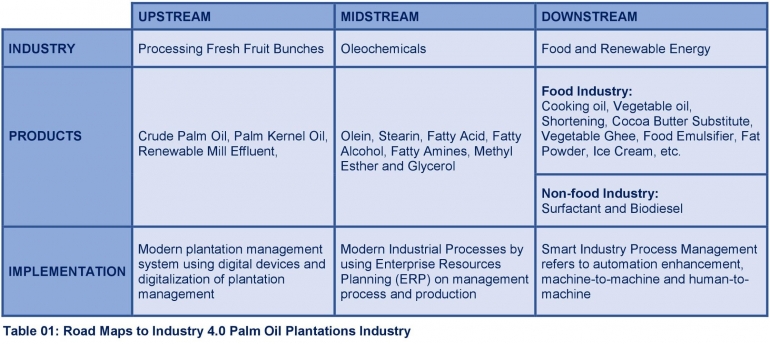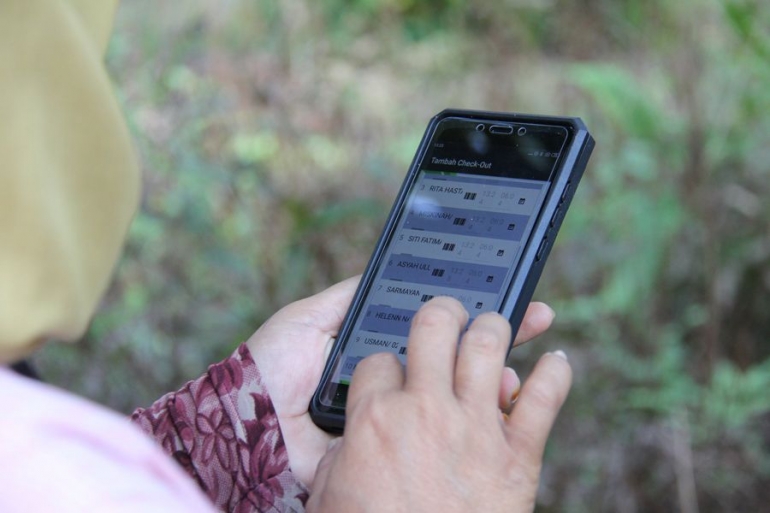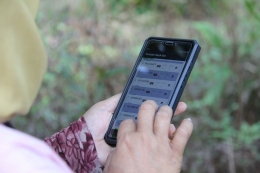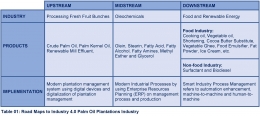Nowadays, the world is at the process of Industrial Revolution 4.0 supported by artificial intelligence (AI), super-computer, big data, cloud computing, and digital innovations that is moving on a very fast pace that will impact directly on economy, industry, government, and global politics.
Industrial Revolution 4.0 is marked by smart industrial process, referring to the application of automation such as machine-to-machine and human-to-machine communication, artificial intelligence (AI), and lastly the sustainable development of digital technology.
Moving on, Industrial Revolution 4.0 can also be defined as the effort to integrate production line with the cyber industry, transforming all production process to run online through an internet connection as the main support.
Digital Technology Application in Plantation Business
As the leader of palm oil industry, Indonesia need to improve their process immediately. Process efficiency and operational in the upstream sector need to be improved immediately, especially concerning the activities that involves a lot of labor power, infield activities such as plant maintenance, land maintenance, fertilizing activities, weeding, harvesting and transportation of fruit, and to weighing and sorting. The matter is because inefficiency of time and cost often happens on this sector.
The implementation of digital technology on the plantation industry, especially palm oil, will facilitate various work sectors on the field. Collection of statistic data from different plantations will be easier and faster, because it doesn't need manual work. The excellence of digital technology is that it can photograph and take picture of fresh fruit bunches, and it has precise location in the field by using tablet or smartphone that is connected with the satellite GPS.
Therefore, field managers will easily track and monitor the activity and performance of workers in real-time, and they can monitor the quality of the fruit and knowing precise location of the problematic area, without the need to be on location.
Besides the simplicity of transferring data from field to excel and making quality report of the fruits, digitalization of plantation industry simplifies the recording of worker's attendance and simplifies field workers to process the data for wages and incentives.
In principle, the use of digital technology is replacing manual process with technology, it will reduce the operating costs, saving time on the transmission of data information, creating transparency, and prevents manipulation of report. Other than that, implementation of digital systems in the plantation sector will reduce fraudulence because it has digital control and monitoring, so it will maximize cost efficiency and increase productivity of palm oil plantations in Indonesia.
In Indonesia, the application of Industry 4.0 on plantation sector, especially palm oil, has to be applied consistently, it is expected to increase productivity, reduce operational cost, and maximize efficiency to increase palm oil exports.
To increase productivity and efficiency optimally, technology such as Internet of Things (IoT), Advance Robotic (AR), Artificial Intelligence (AI), and Digitalized Infrastructure (DI) must be implemented soon.
Structural transformation from agriculture sector to industry sector will increase income per capita and ushering Indonesian people from an agrarian to an economy that relies on the process of increasing industrial value-added, accelerated by development of digital technology.
- Digitalization of the Upstream Industry. Palm oil is one of leading commodity in Indonesia, that plays a big role on the national economic, and it contributed on the foreign exchange and employment. Growth of downstream palm oil industry in Indonesia is in line with the growth of plantation area and palm oil production as a source of raw materials. Besides producing CPO products, fresh fruit bunches also produces Palm Kernel Oil (PKO). Production of PKO grows as CPO products increase, around 10% of the CPO produced.
- Digitalization of Midstream Industry. Crude Palm Oil (CPO) and Palm Kernel Oil (PKO) can produce various types of midstream product that can be produced as raw material for the downstream industry for food and non-food category. Among the midstream industry groups, it includes the fatty acid, fatty alcohol, fatty amines, methyl ester, glycerol.
- Digitalization of Downstream Industry. The palm oil midstream industry produces various type of products, most of the products has potential market share, for both domestic and export market share. The development of downstream palm oil industry needs to be implemented immediately concerning high value-added of downstream palm oil products. Downstream palm oil industry has a vast spectrum, with more than 100 downstream products which can be produced on an industrial scale. However, only 23 downstream product types that has been commercially produced in Indonesia.
In context of facing revolution industry 4.0, palm oil industry needs to develop quickly especially on digital technology aspects, because the growth of digital technology will be the main key of Indonesian's competitiveness in the future.

The development of technology in the palm oil industry is important for Indonesia to compete with other countries. If we do not make improvements from the upstream sector to the downstream sector, we will not only be unable to reach the target but will be left behind by other countries that are more prepared in the global and domestic markets.
Challenges of the Indonesian Palm Oil Industry
Indonesia is the biggest palm oil producer in the world. The export of palm oil has a massive contribution to the Gross National Income (GNI); therefore, it gives big responsibility for government and producers to keep producing palm oil for domestic and global consumption.
eKomoditi Solutions Indonesia has the duty to help the development of palm oil industry so that plantations in Indonesia evolves into a modern plantation and ensuring palm oil commodity can compete in the global market.

Applications that has been developed by eKomoditi Solutions Indonesia are: (1) Electronic Plantations Control System (ePCS) is an application to control and monitor plantation operations using Android platform, (2) Enterprise Resource Planning (ERP) is a software to manage business organizations using digital platform, and lastly (3) PlantationDirectory.com is a marketplace to sell and buy plantation fields and products.












